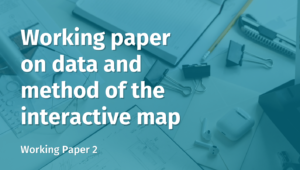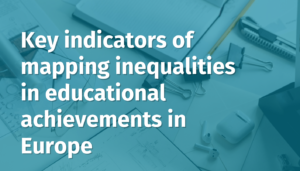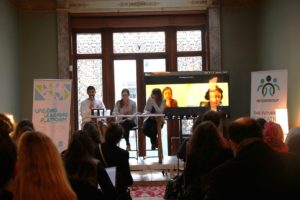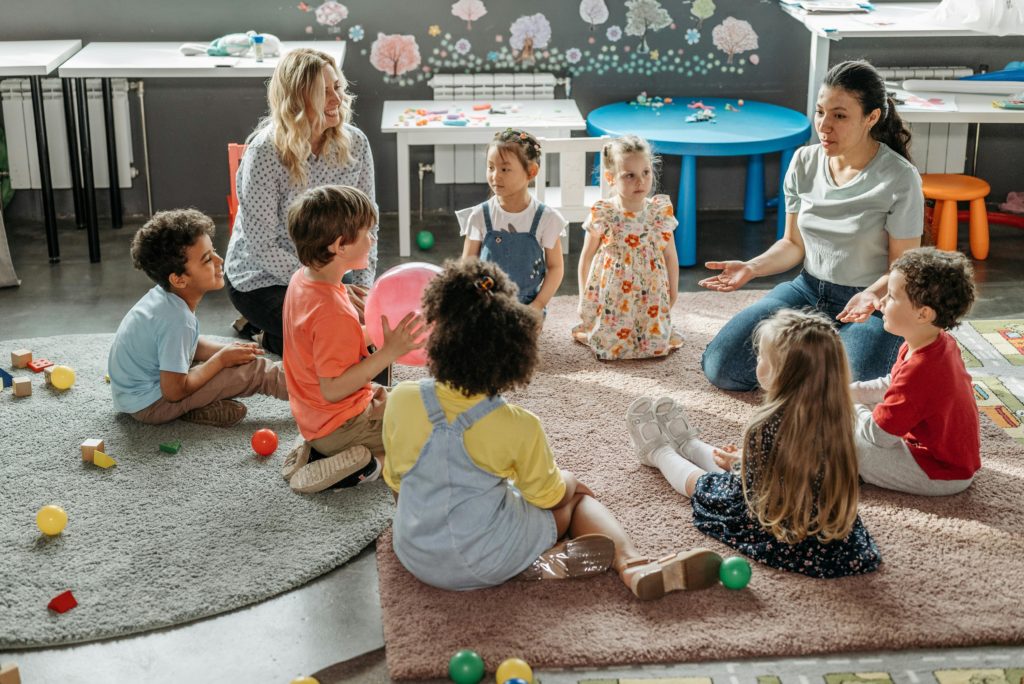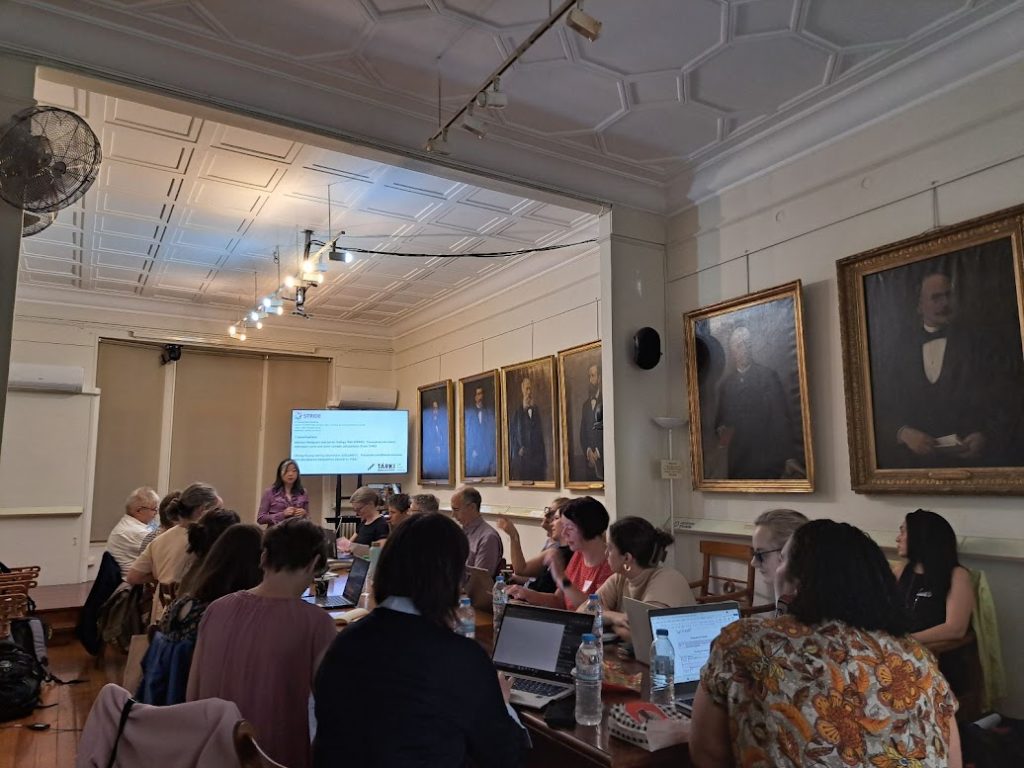This repository presents existing longitudinal studies on short-term and longer-term effects of early school education and care in Europe from published English literature. The map is a visual presentation of 38 studies identified from 10 European countries.

Four categories of longitudinal studies on effects of ECEC:
- Universal policy intervention (13 studies)
- Targeted policy intervention (9 studies)
- Access to forms and lengths of ECEC (9 studies)
- Quality and child development of ECEC (7 studies)
Evangelou, M., Brooks, G., & Smith, S. (2007). The Birth to School Study: evidence on the effectiveness of PEEP, an early intervention for children at risk of educational under‐achievement. Oxford Review of Education, 33(5), 581–609. https://doi.org/10.1080/03054980701476477
Melhuish, E., Gardiner, J., & Morris, S. (2017). Study of Early Education and Development (SEED): Impact Study on Early Education Use and Child Outcomes up to Age Three. DFE-RR706
Blanden, J., Del Bono, E., Hansen, K. et al. Quantity and quality of childcare and children’s educational outcomes. J Popul Econ 35, 785–828 (2022). https://doi.org/10.1007/s00148-021-00835-4
Jo Blanden, Emilia Del Bono, Sandra McNally, Birgitta Rabe, Universal Pre‐school Education: The Case of Public Funding with Private Provision, The Economic Journal, Volume 126, Issue 592, May 2016, Pages 682–723, https://doi.org/10.1111/ecoj.12374
McKeown, K., Haase, T., & Pratschke, J. (2015). Determinants of child outcomes in a cohort of children in the Free Pre-School Year in Ireland, 2012/2013. Irish Educational Studies, 34(3), 245–263. https://doi.org/10.1080/03323315.2015.1065430
McGinnity, F., McMullin, P., Murray, A., & Russell, H. (2017). “Chapter 6 Social inequality in cognitive outcomes in Ireland: What is the role of the home learning environment and childcare?”. In Childcare, Early Education and Social Inequality. Cheltenham, UK: Edward Elgar Publishing. Retrieved Jul 28, 2025, from https://doi.org/10.4337/9781786432094.00015
Kuehnle, D., Oberfichtner, M. Does Starting Universal Childcare Earlier Influence Children’s Skill Development?. Demography 57, 61–98 (2020). https://doi.org/10.1007/s13524-019-00836-9
Zachrisson, H. D., Dearing, E., Borgen, N. T., Sandsør, A. M. J., & Karoly, L. A. (2023). Universal Early Childhood Education and Care for Toddlers and Achievement Outcomes in Middle Childhood. Journal of Research on Educational Effectiveness, 17(2), 259–287. https://doi.org/10.1080/19345747.2023.2187325
Edwin Leuven, Mikael Lindahl, Hessel Oosterbeek, Dinand Webbink, Expanding schooling opportunities for 4-year-olds, Economics of Education Review, Volume 29, Issue 3, 2010, Pages 319-328, ISSN 0272-7757, https://doi.org/10.1016/j.econedurev.2009.10.004.
de Haan, A., Elbers, E., Hoofs, H., & Leseman, P. (2012). Targeted versus mixed preschools and kindergartens: effects of class composition and teacher-managed activities on disadvantaged children’s emergent academic skills. School Effectiveness and School Improvement, 24(2), 177–194. https://doi.org/10.1080/09243453.2012.749792
Verachtert, P., Van Damme, J., Onghena, P., & Ghesquière, P. (2009). A seasonal perspective on school effectiveness: evidence from a Flemish longitudinal study in kindergarten and first grade. School Effectiveness and School Improvement, 20(2), 215–233. https://doi.org/10.1080/09243450902883896
Ágnes Szabó-Morvai, Daniel Horn, Anna Lovász, Kristof De Witte, Universal preschool and cognitive skills – the role of school starting age as a moderating factor, Early Childhood Research Quarterly, Volume 64, 2023, Pages 278-289, ISSN 0885-2006, https://doi.org/10.1016/j.ecresq.2023.04.004.
Felfe, C., Nollenberger, N. & Rodríguez-Planas, N. Can’t buy mommy’s love? Universal childcare and children’s long-term cognitive development. J Popul Econ 28, 393–422 (2015). https://doi.org/10.1007/s00148-014-0532-x
Carneiro, P. et al. (2024). The effect of Sure Start on youth misbehaviour, crime and contacts with children’s social care (pp. 1–75). London: lnstitute for Fiscal Studies. Retrieved from lnstitute for Fiscal Studies website: https://ifs.org.uk/sites/default/files/2024-12/The-effect-of-Sure-Start-on-youth-misbehaviour-crime-and-contacts-with-children-social-care-1.pdf
Sammons, P. et al. (2015). The impact of children’s centres: studying the effects of children’s centres in promoting better outcomes for young children and their families Evaluation of Children’s Centres in England (ECCE, Strand 4) (pp. 1–14). University of Oxford. Retrieved from University of Oxford website: https://assets.publishing.service.gov.uk/media/5a816b21ed915d74e623228d/DFE-RB495_Evaluation_of_children_s_centres_in_England__the_impact_of_children_s_centres_brief.pdf
P, Carneiro and S, Cattan and N, Ridpath. (2024). The short- and medium-term impacts of Sure Start on educational outcomes. London: Institute for Fiscal Studies. Available at: https://ifs.org.uk/publications/short-and-medium-term-impacts-sure-start-educational-outcomes
Nina Drange, Kjetil Telle, Promoting integration of immigrants: Effects of free child care on child enrollment and parental employment, Labour Economics, Volume 34, 2015, Pages 26-38,
ISSN 0927-5371, https://doi.org/10.1016/j.labeco.2015.03.006.
Nabanita Datta Gupta, Marianne Simonsen, Non-cognitive child outcomes and universal high quality child care, Journal of Public Economics, Volume 94, Issues 1–2, 2010, Pages 30-43, ISSN 0047-2727, https://doi.org/10.1016/j.jpubeco.2009.10.001.
Gupta, Nabanita Datta; Simonsen, Marianne (2007) : Non-cognitive child outcomes and universal high quality child care, IZA Discussion Papers, No. 3188, Institute for the Study of Labor (IZA), Bonn https://hdl.handle.net/10419/34322
Sylke W.M. Toll, Johannes E.H. Van Luit, Effects of remedial numeracy instruction throughout kindergarten starting at different ages: Evidence from a large-scale longitudinal study, Learning and Instruction, Volume 33, 2014, Pages 39-49, ISSN 0959-4752, https://doi.org/10.1016/j.learninstruc.2014.03.003.
Sylva, K., Melhuish, E., Sammons, P., Siraj-Blatchford, I. & Taggart, B. (2007). Promoting equality in the early years: Report to the equalities review. London, United Kingdom: EPPE Project. Link
Frances McGinnity, Patricia McMullin, Aisling Murray, Helen Russell, Emer Smyth, Understanding differences in children’s reading ability by social origin and gender: The role of parental reading and pre- and primary school exposure in Ireland, Research in Social Stratification and Mobility, Volume 81, 2022, 100729, ISSN 0276-5624, https://doi.org/10.1016/j.rssm.2022.100729.
Stefanie Sprong, Jan Skopek, Childcare utilisation by migration background: Evidence from a nationally representative Irish cohort study, Research in Social Stratification and Mobility, Volume 84, 2023, 100773, ISSN 0276-5624, https://doi.org/10.1016/j.rssm.2023.100773.
Oliver Klein, Birgit Becker, Preschools as language learning environments for children of immigrants. Differential effects by familial language use across different preschool contexts,
Research in Social Stratification and Mobility, Volume 48, 2017, Pages 20-31, ISSN 0276-5624, https://doi.org/10.1016/j.rssm.2017.01.001.
Gaia Ghirardi, Tina Baier, Corinna Kleinert, Moris Triventi, Is early formal childcare an equalizer? How attending childcare and education centres affects children’s cognitive and socio-emotional skills in Germany, European Sociological Review, Volume 39, Issue 5, October 2023, Pages 692–707, https://doi.org/10.1093/esr/jcac048
Felfe, Christina; Lalive, Rafael (2010) : How does Early Child Care affect Child Development? Learning from the Children of German Unification, Beiträge zur Jahrestagung des Vereins für Socialpolitik 2010: Ökonomie der Familie – Session: Economics of Child Care and Child Development, No. B11-V2, Verein für Socialpolitik, Frankfurt a. M. https://hdl.handle.net/10419/37432
Karoline Mikus, Nicole Tieben, Pia S. Schober, Concerted cultivation in early childhood and social inequalities in cognitive skills: Evidence from a German panel study, Research in Social Stratification and Mobility, Volume 72, 2021, 100547, ISSN 0276-5624, https://doi.org/10.1016/j.rssm.2020.100547.
Havnes, Tarjei, and Magne Mogstad. 2011. “No Child Left Behind: Subsidized Child Care and Children’s Long-Run Outcomes.” American Economic Journal: Economic Policy 3 (2): 97–129. DOI: 10.1257/pol.3.2.97
Russell, H., Kenny, O., & Mcginnity, F. (2016). CHILDCARE, EARLY EDUCATION AND SOCIO-EMOTIONAL OUTCOMES AT AGE 5 EVIDENCE FROM THE GROWING UP IN IRELAND STUDY (pp. 1–105). Dublin: The Economic and Social Research Institute. https://www.esri.ie/system/files/publications/BKMNEXT322%20%281%29.pdf
Ingunn Størksen, Mari Rege, Ingeborg Foldøy Solli, Dieuwer ten Braak, Ragnhild Lenes, G. John Geldhof, The playful learning curriculum: A randomized controlled trial, Early Childhood Research Quarterly, Volume 64, 2023, Pages 36-46, ISSN 0885-2006, https://doi.org/10.1016/j.ecresq.2023.01.015.
Anders, Y., Grosse, C., Rossbach, H. G., Ebert, S., & Weinert, S. (2012). Preschool and primary school influences on the development of children’s early numeracy skills between the ages of 3 and 7 years in Germany. School Effectiveness and School Improvement, 24(2), 195–211. https://doi.org/10.1080/09243453.2012.749794
Ana Isabel Pinto, Manuela Pessanha, Cecília Aguiar, Effects of home environment and center-based child care quality on children’s language, communication, and literacy outcomes, Early Childhood Research Quarterly, Volume 28, Issue 1, 2013, Pages 94-101, ISSN 0885-2006, https://doi.org/10.1016/j.ecresq.2012.07.001.
Simone Lehrl, Katharina Kluczniok, Hans-Guenther Rossbach, Longer-term associations of preschool education: The predictive role of preschool quality for the development of mathematical skills through elementary school, Early Childhood Research Quarterly, Volume 36, 2016, Pages 475-488, ISSN 0885-2006, https://doi.org/10.1016/j.ecresq.2016.01.013.
Dieuwer ten Braak, Ragnhild Lenes, David J. Purpura, Sara A. Schmitt, Ingunn Størksen, Why do early mathematics skills predict later mathematics and reading achievement? The role of executive function, Journal of Experimental Child Psychology, Volume 214, 2022, 105306, ISSN 0022-0965, https://doi.org/10.1016/j.jecp.2021.105306.
Ragnhild Lenes, Megan M. McClelland, Dieuwer ten Braak, Thormod Idsøe, Ingunn Størksen, Direct and indirect pathways from children’s early self-regulation to academic achievement in fifth grade in Norway, Early Childhood Research Quarterly, Volume 53, 2020, Pages 612-624, ISSN 0885-2006, https://doi.org/10.1016/j.ecresq.2020.07.005.
Zijlstra, H., van Bergen, E., Regtvoort, A., de Jong, P. F., & van der Leij, A. (2021). Prevention of reading difficulties in children with and without familial risk: Short- and long-term effects of an early intervention. Journal of Educational Psychology, 113(2), 248–67. https://doi.org/10.1037/edu0000489

